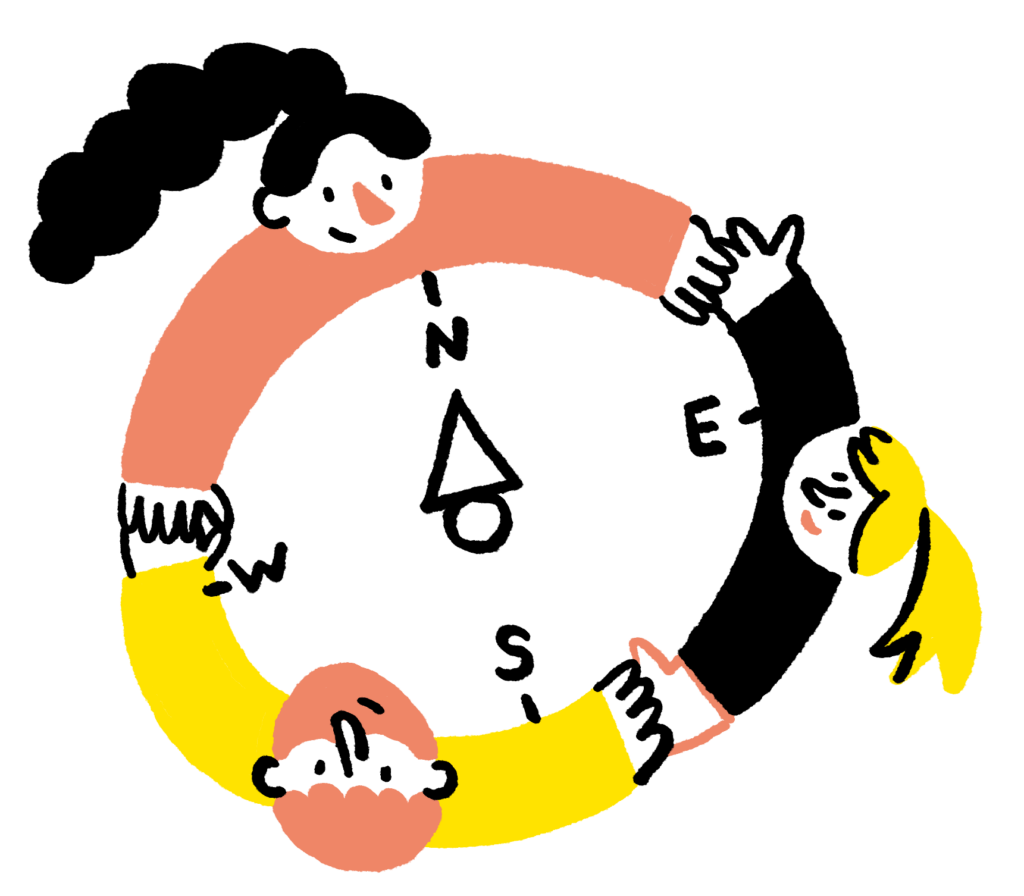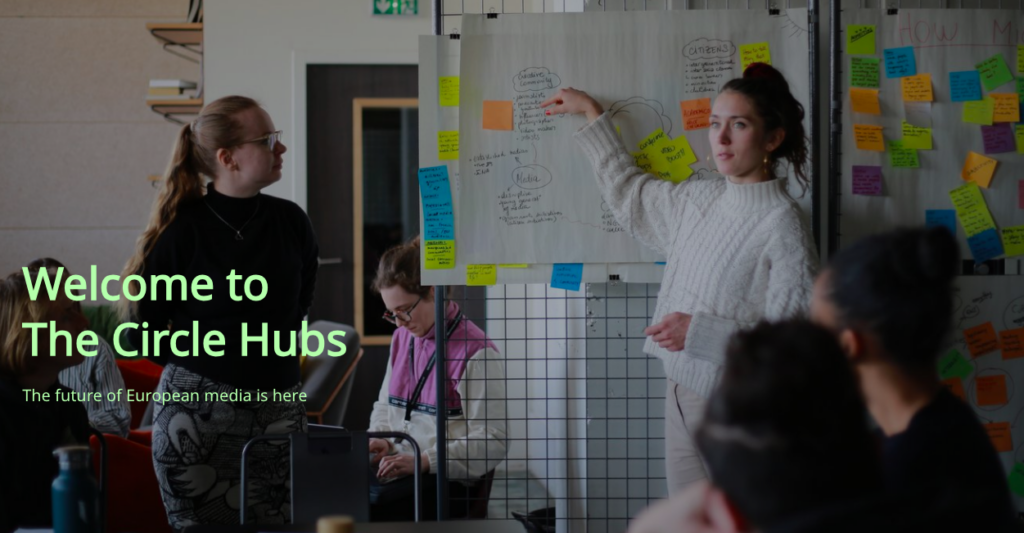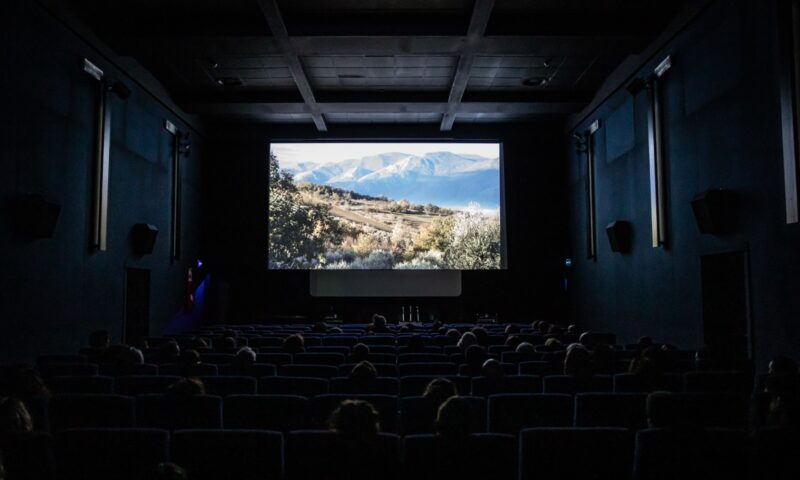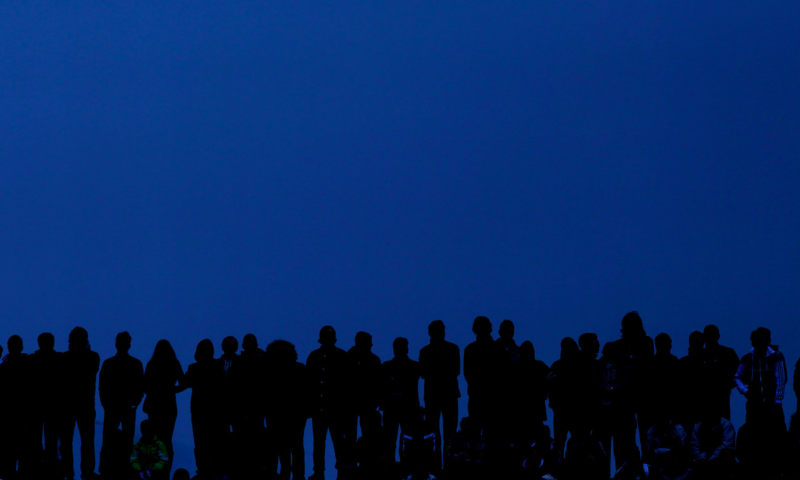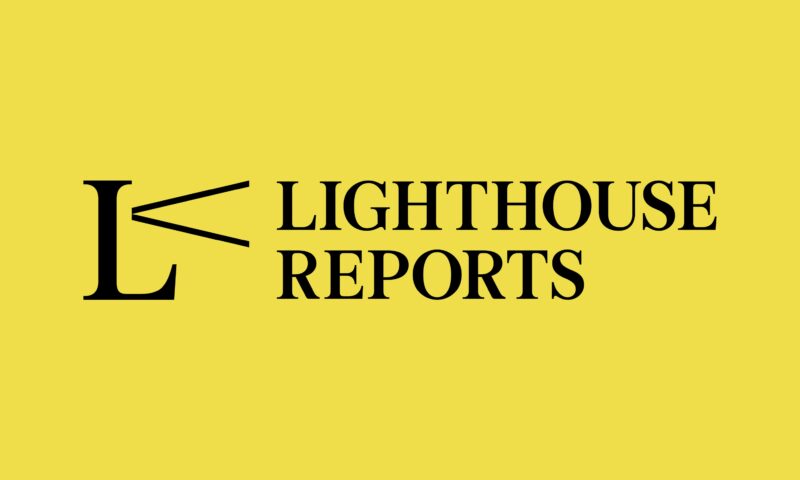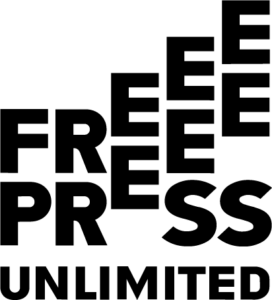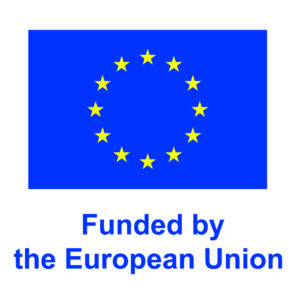Started as a collective of creatives asking themselves about their European identity, Are We Europe now encompasses a creative storytelling studio and a foundation supporting media and collaborative journalism initiatives outside European capitals.
Are We Europe (AWE) works to support journalists at the beginning of their career and from diverse backgrounds access more opportunities and to decentralise journalism. The organisation has recently shifted its work, from publishing a print magazine as a platform for this mission, to focusing on collaborative projects across Europe, building journalism hubs in under-resourced places and supporting the production of journalism that reflects the diversity of European voices.
Sabrina Faramarzi is a journalist, editor and research analyst who joined AWE in December 2023 as managing director. Having previously founded two organisations, Dust in Translation, helping others tell stories with data, and Feminist Internet, an activist arts collective, she has been working on collaborative, interdisciplinary projects with a European and global focus for years. To better understand what comes next for AWE, I asked her about how their mission translates into palpable projects and how they choose where to get involved, and in what capacity. The interview is edited for length.
Directory Editor: How has your role shaped up at Are We Europe?
Sabrina Faramarzi: A lot of what I do is not just overseeing the team, but thinking about who our new partners are, what kinds of new projects we can develop, where are the media deserts across Europe where we can help grow something.
One of the main projects we have is the Circle Hubs, in eight different cities across Europe. It was really about going into places that are completely underserved and using design thinking to action innovation. Some of those places were Cluj-Napoca in Romania, Gothenburg in Sweden, in Naples, Italy, where Marea Media has now registered as a non-profit, and that’s creating a space so they can continue and be sustainable.
We believe that the future of journalism is collaborative and is decentralised. Everything we do is with either a partner or a network of partners, and really looking at decentralising journalism from those Northern, West European hubs. Most of my role is about finding new partners, new opportunities, designing projects that will not only help sustain independent media organisations, but those in different geographies.
And creating opportunities for young journalists. Access can be a huge leveler and it shouldn’t be that if you want to be a journalist, you have to move to a capital city.
We use our design sprint methodology as a framework to get access to funding so that we can go into those places, do everything super locally, and really be able to build those media ecosystems.
Editor: What is the process for Are we Europe’s projects to be accessible, that you follow in each new location you go into?
SF: The difference between our methodology and others is that we really look to sub-grant a lot, so that we allow those journalists in those local media ecosystems to do what they do best. We also support them for long after our project, and those different types of hubs will also be our future partners, really creating this very circular process.
There’s a number of ways that we do it. Going back to the Circle, the idea was to look at spaces in which there is some exciting media and journalism activity, but that don’t necessarily have the infrastructure. We go in and we do a two-week design sprint, to teach them the methodologies that will bring them into a space where they can build their own things. Within two weeks, very quickly be able to iterate and prototype a bunch of different innovation formats so that at the end, they really have something. And that also includes journalism training, so really plugging in what skills gaps they might have, but also being there to facilitate connections to the community.
A lot of the ideas for the different hubs came from our own collective, getting together this journalist, that journalist, that media maker and that documentary filmmaker. And going in and helping them formalise that.
We have an online community in which there’s regular training, we get in journalists from all across Europe, we share opportunities and each hub also has a series of mentors. The sprint itself is just where everything comes together in those two weeks, it’s just the launch pad.
From that project, we really felt the core of what Are We Europe wanted to do, collaborative and decentralised. This year, we have been building it out into what we’re calling DEMA: Designing Europe’s Media for All. It is a manifesto, a mission, a programme and a network. It’s a series of different programmes, which include open source trainings, and we will go into more places across Europe to really serve those underserved and to be able to start sub-granting out to those different hubs.
Editor: What have you found most challenging so far?
SF: It can be really overwhelming because you’re working with so many different people, in so many different countries with so many different needs. And as a launch pad, it’s making sure we can be flexible enough to serve all those different things.
Early on in my career, because of the economic landscape of the media, it felt like the organisations were fighting for the same piece of bread. Actually, there’s so many different ways in which we can do this by working together. My favorite thing is meeting our partners all across Europe and building new ideas with them.
Doing those things by yourself, it just feels like it’s missing out on such a big opportunity to do something that has not just lasting impact, but also scale, a ripple effect.
I definitely wouldn’t be here if it weren’t for a number of different initiatives created by non-profits when I was growing up. And even last year, I did an EU funded women’s fellowship programme by Impact Hub in Spain. That programme was about bringing together women entrepreneurs from around Europe, because we don’t tend to have networks, and the impact is huge.
Editor: In terms of resources and how Are We Europe is choosing what to be involved with and what not, what are some of the driving criteria?
SF: The main questions we ask ourselves are: is this collaborative? Is it pushing for a more decentralised landscape of opportunity? Is it serving underserved communities? How does it benefit other people and how does it benefit our own community and our own network of partners? Does it have the impact that it deserves?
One bad habit the journalists have is that we tend to put our heart and soul into one thing, and then once it’s done and it’s published, we move on. And actually a big part of what I’m trying to do, and what I love that we at AWE are trying to do, is building on existing infrastructure.
The eight hubs from The Circle project are just the start, we’re looking at doing another eight. Then really building them into media organisations, and having them as potential partners, being our sub-grantees.
We also just launched a new project called MigraVoice, which is looking at the voices of migrants across Europe. That’s with six different media organisations and in different languages, including Arabic and Spanish.
Some of our projects also include a production element. So for MigraVoice, we will be launching a pop-up newsroom with migrant journalists, and producing a magazine about the voices of migrants across Europe. And then there’s another part in which we are creating what we’re calling a superpower community, training journalists across Europe to do more cross-border productions. Not just journalists who are migrants, but journalists who are writing about migrants too, really thinking about the ways in which that is defined and making sure that those narratives aren’t producing more hate.
Editor: As you are at the start of the journey with Are We Europe, what has resonated with you the most, reflecting back on your own work up until this point?
SF: I just love meeting and working with different people. It’s only been a couple of months, but we’ve already designed five types of new projects, and I’m really excited about seeing how we might bring them to life and have lots of different people included.
I spent a lot of my career really working alone as a journalist and I never wanted to work alone. And I think there’s so many more interesting ways to be a journalist and to produce journalism.
